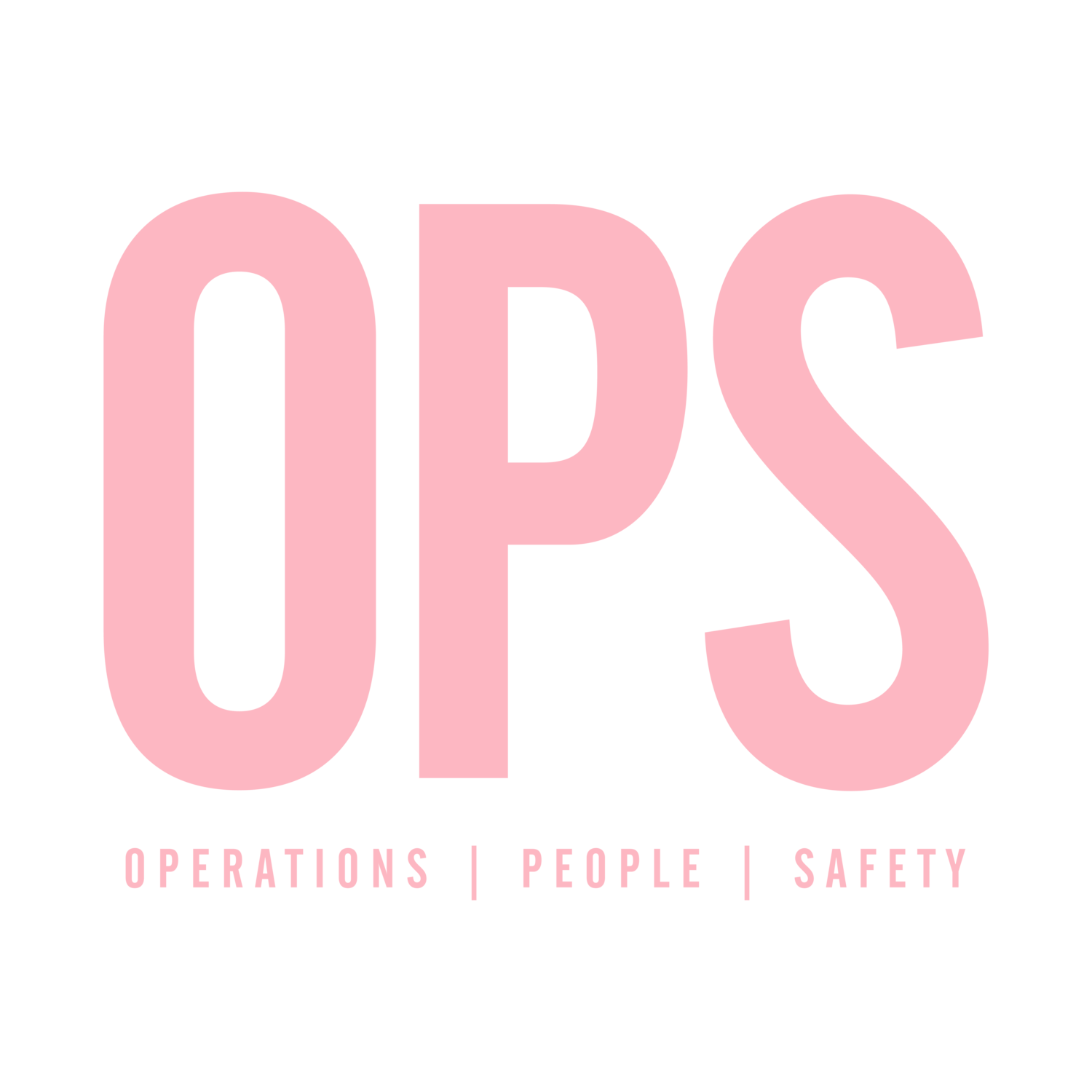When it comes to organising an event, guest safety is non-negotiable. With large crowds, stages, food traders, and multiple activities, it’s vital to ensure that attendees, staff, and artists are all safe.
In our experience, a strong health and safety plan doesn’t just reduce the likelihood of accidents; It can also save you from legal headaches and ensures attendees have the best experience possible. So, what are the key areas of health and safety to consider when planning your event?
1. Risk Assessment and Hazard Identification
Let’s start with the basics. A risk assessment isn’t just a “nice-to-have”—it’s a legal requirement under UK law. Failing to properly assess risks before an event kicks off could be disastrous, both for the event and its reputation. Identifying potential hazards early on— whether it’s extreme weather, crowd control issues, or fire risks—allows you to mitigate them before they become a problem.
We Are OPS Tips:
- Carry out a comprehensive risk assessment—don’t leave anything to chance.
- Plan for worst-case scenarios: wishful thinking won’t prevent the UK’s bad weather!
- Plan for all conditions, medical incidents, fire risks, etc.
2. Training and Awareness
Having a plan is one thing, but ensuring your team knows how to execute it is another. Staff, crew, and security personnel need solid training to handle emergencies and every day festival operations. This includes everything from first aid to crowd control and egress procedures.
One thing that often gets overlooked is the communication of safety procedures to attendees. Clear signage, well-timed announcements and messaging can go a long way in making sure eventgoers are informed about where to get help if they need it. After all, people who are aware of safety measures are much more likely to stay safe.
We Are OPS Tips:
• Keep Everyone Updated — keep staff, crew, and volunteers updated on emergency response and site-specific safety risks. The more planning you do ahead of time – the better!
Find out more: Event Health & Safety Training
3. Emergency Preparedness and Response
Emergencies can happen. Whether it’s a medical issue, extreme weather concerns, or something else entirely, you need to be prepared. Without the proper preparation, you’re opening your event to potential disaster.
Make sure your emergency plans outline all emergency details, such as evacuation routes and the location of your nearest A&E. If something does go wrong, the last thing you want is a delay because of poor planning.
We Are OPS Tips:
- Develop a clear and extensive emergency response plan.
- Consider the foreseeable emergencies your event could encounter
- Equip staff with communication tools and channels to respond swiftly to any incident.
Find out more: Who are We Are OPS?
4. Personal Protective Equipment (PPE)
Not every event requires PPE, but there are certain areas where it’s absolutely essential. Any staff working in high-risk areas— such as on stages, plant, food prep or heavy equipment— will need to have the appropriate protective gear. This could include high-vis, hardhats, ear protection and more. Your Risk Assessment will help you work out what PPE you need.
Having spare PPE on site is a solid way to guarantee your team are compliant and content.
We Are OPS Tip:
- Make sure your staff and crew in high-risk roles have appropriate PPE (and spares!).
5. Health and Hygiene
Similarly, keeping an event clean and hygienic isn’t just about aesthetics—it’s about public health. It goes without saying that events and festivals need adequate toilet facilities and handwashing stations, as well as food safety measures.
We Are OPS Tips:
- Provide enough toilets and handwashing stations for both crew and guests (Ensure caterers and bar staff have dedicated toilets!).
- Ensure food traders are adhering to food safety regulations.
- Have water stations available throughout the site, especially when we’re blessed with some nice weather.
6. Crowd Control and Management
Managing crowds is one of the trickier aspects of the job. Poor crowd management can lead to accidents or, in the worst-case scenario, fatalities. Crowd control isn’t just about managing large groups of people; it’s about ensuring that people can move around freely without unnecessary congestion, queues, or dangerous situations. Using barriers, clear signage, and having trained security staff can make all the difference in keeping everything running smoothly.
We Are OPS Tips:
- Use barriers and signage to guide crowd flow and prevent overcrowding.
- Ensure the site has enough exits and emergency routes for ingress and egress.
- Make sure SIA staff are trained in key areas to handle any crowd-related issues.
7. Legal Compliance and Documentation
This one is a no-brainer—if you’re not compliant with health and safety regulations, you’re opening yourself up to potential legal trouble.
From acquiring the Premises Licenses to ensuring that your event adheres to fire, noise, and environmental laws, staying on top of the legal side of things is critical.
Documentation is also key. Keep thorough records of your risk assessments, safety plans, and staff training. If an incident happens, having these documents at hand will prove invaluable when dealing with health and safety inspectors or insurance providers.
We Are OPS Tips:
- Familiarise yourself with health and safety laws and make sure your event complies with all regulations.
- Keep detailed records for future reference and legal compliance.
In the world of event and festival planning, health and safety isn’t just a checkbox—it’s the backbone of your event. By focusing on these seven key areas, you’ll not only stay on the right side of the law but also create a festival where guests, staff, and performers can feel safe and secure.
At We Are OPS, we take the health and safety of your event seriously. We cover all these key areas, from risk assessments to crowd management, and are passionate about delivering events that are not only successful but safe for everyone involved. With our expertise and commitment to the highest standards, you can trust us to ensure a smooth, secure, and memorable experience for your attendees, staff, and performers alike. If you’re looking for a reliable partner to manage your event’s health and safety, we’re here to help.
Get in touch with us today through our Contact Page to learn more.

